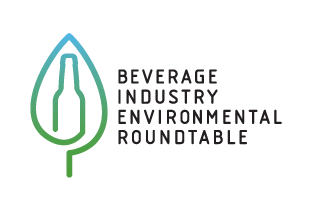2021 in Review: BIER Reflects on a 15th Year of Being a Model of Industry Collaboration

2021 In Review: BIER Reflects on a 15th Year of Being a Model of Industry Colla…
In 2021, the Beverage Industry Environmental Roundtable (BIER) celebrated its 15 year anniversary as a consortium of leading global beverage companies advancing environmental sustainability. BIER has been recognized as a model of industry collaboration and has continuously advanced the development of sustainable solutions through beverage industry-specific data collection, methodologies, standard-setting, best practice sharing, and thought leadership. BIER members have driven sector actions and alignment, stakeholder engagement and advocacy, and corporate leadership on business-relevant environmental dimensions including water, energy and greenhouse gas emissions (GHG), climate change and adaptation, circularity and recycling, and sustainable and regenerative agriculture.
The importance of collaboration has never been greater than what was experienced in 2021. Business sustainability and a heightened focus on ESG took center stage in corporate board rooms due to increased investor scrutiny and consumer demand for industry to decarbonize, address biodiversity and deforestation, and develop solutions to our collective problems surrounding food security, water and sanitation, plastics, and more. The release of the recent IPCC report indicates that climate change is widespread, rapid, and intensifying. Specifically, the report provided new estimates of the chances of crossing the global warming level of 1.5°C in the next decades, and found that unless there are immediate, rapid and large-scale reductions in greenhouse gas emissions, limiting warming to close to 1.5°C or even 2°C will be beyond reach. Notably, COP26 aimed to outline the plans of countries, cities, and industries to mitigate and adapt to climate change with the conference culminating in mixed results towards a path forward.
For the past 15 years, progress has been made towards the United Nations sustainable development goals (SDGs) by the beverage industry, yet BIER members understand that the stakes are high and there is much work to be done. BIER continues to step up to the challenge and in 2021 accomplished a number of achievements that, as with most of BIER’s work, are shared with external stakeholders to promote advancement beyond the beverge sector. The following highlight some of BIER’s achievements in the past year:
- In response to increased pressures to move towards low carbon economies, BIER published The Facility Decarbonization Playbook. The focus of the Facility Decarbonization Playbook is on providing guidance to less mature facilities to accelerate the journey from negative to positive impacts with regard to emissions. Because facility decarbonization needs to occur locally, the Facility Decarbonization Playbook offers foundational information to spur local efforts and is considered hugely informative to other sectors that might be lagging.
- As a complementary guide, BIER is also near completion of a Decarbonization Playbook for Small/Medium Suppliers which will be published in January 2022.
- BIER’s Charco Bendito watershed project in the Municipality of Tlajomulco de Zuniga, Jalisco Mexico has been hailed as a “first of its kind” collaboration among leading beverage companies.
- Meeting the increased need for business operations to address challenges related to water quantity, quality and value from a context-based perspective, BIER in partnership with the World Business Council for Sustainable Development (WBCSD) developed The Water Circularity Metrics Tool and Tool Application and Guidance Note. The tool is a scenario-based tool providing a practical methodology for businesses to adopt a common metric for water circularity at a facility and enterprise level. The step-by-step process supports more informed decisions to evaluate a specific facility’s water needs, water source options, and determining post-use and discharge options allowing for a transition from linear to more circular and less demanding on the local watershed.
- Promoting the sustainable use and protection of water is a business imperative for BIER members and in keeping with BIER’s focus on water, it published The Six Principles of World Class Stewardship in the Beverage Industry. This was an updated BIER Water Stewardship Framework Definition with technical contributions from industry experts Tom Williams of World Business Council for Sustainable Development, Paul Reig of Blue Risk, and Will Sarni of Water Foundry.
- Our biannual Global Water, Energy, and GHG Benchmarking Study was completed this year with data from over 1,600 global facilities across BIER member companies as well as partner organizations participating including Distilled Spirits Council of the United States (DISCUS), Kentucky Distillers’ Association (KDA), and International Bottled Water Association (IBWA). Our latest benchmarking report will be published in January 2022.
No doubt the business landscape has dramatically changed over the course of 2021. As climate change awareness continues to increase throughout the world, members of BIER are proactively driving strategies to reduce the greenhouse gas emissions associated with their enterprises and monitor changing physical and transitional conditions.
As we look toward 2022 and beyond, commitment to being corporate leaders within environmental sustainability requires that beverage companies look beyond their own operations and engage with a wide range of stakeholders. There will be a continued focus on providing guidance and tools related to global water quality and supply, greenhouse gas emissions, packaging waste, food security, regenerative agriculture, and biodiversity conservation.
In keeping with the collaborative spirit of BIER, we recognize that alone, one company cannot solve the world’s challenges and as a collective group, we can’t solve it either. There is an immediate need for industry, organizations, and governments to work together and collaboratively focus towards a sustainable future for us all. As such, all of BIER’s guidance and tools are publicly available and offered complimentary to assist organizations and companies to easily navigate the complexities of the sustainability journey avoiding complications and maximizing positive impact. There is no time like the present - now is a crucial moment for us all to assess and reaffirm commitments to sustainable actions.
Learn more about BIER.

